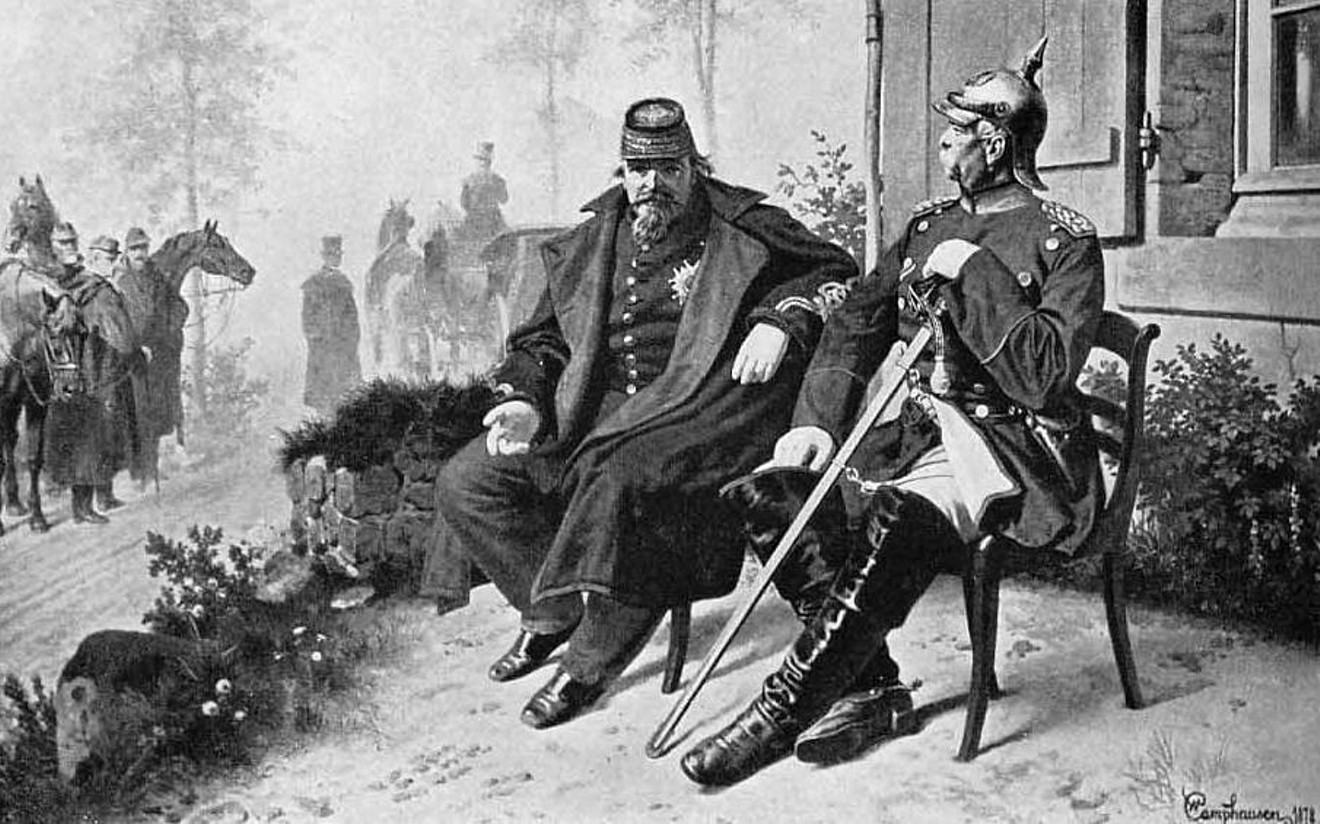By Alan Strauss-Schom
512 pp.
$32.50
St. Martin’s Press
You think people like Julian Lennon, Hank Williams Jr., or Carrie Fisher had pressure when they decided to enter the family business after a well-known relative? Imagine being Napoleon III, taking up the same gig as your famous uncle who was both the most admired and reviled Frenchman of his time worldwide. As his nephew discovered while President of France from 1848-1852, then Emperor until 1870, those were some big (figuratively) shoes to fill.
In this, the first major English-language bio of the man from the same author who did a hefty 1997 book on the O.G. Napoleon, Strauss-Schom details the life of a man whose reign is controversial even today.
One on hand, Louis Napoleon/Napoleon III created the first nationwide rail network, launched steamship lines and a powerful navy, introduced a new banking sector, old age pensions, and free trade agreements. He expanded agriculture and job creation and – perhaps his best-known achievement – razed 1/3 of the city of Paris to eliminate slums to build modern living facilities with ample air, running water, and structural safety.
He had tapped prefect Georges Haussmann for this task to renovate the city, but also to lead the effort to improve streets, sewers, gas lamps, and parks. Haussmann did this brilliantly, though later was dismissed and demeaned by a petulant Napoleon due to political maneuverings.
On the other hand, he was an imperious leader whose authoritarianism lead to censorship and jailing of political and social opponents. He staged two failed coups against the existing government before taking ultimate power from King Louis Phillippe, who abandoned the throne. (a third “self-coup” castrated legislative powers to give him more power). He also kept advisors close to him (including half-brother Charles de Morny) who weren’t necessarily his best advocates with his or the country’s best interests at heart.
And while he achieved military victories in the Crimean War (with ally Britain) and helped drive the Austrians out of Italy for that country to achieve independence, missteps in Mexico and the Franco-Prussian War (which ended his reign and sent him into exile) were his ultimate undoing.
Strauss-Schom’s writing is, shall we say, not the liveliest of prose. But it has the detail and insight of an extremely skilled and thorough historian, biographer, and researcher. He goes deep into Louis’ bizarre relationship with his critical, disapproving, spendthrift, and never-satisfied absent father, Napoleon I’s brother (the Emperor’s and first wife Marie-Louise’s son and direct heir Napoleon II died in 1832 at the age of 21).
“No one can begin to understand Napoleon III without full comprehending the significance of that negative father-son relationship, leaving a much-battered ego and a sense of self-esteem hopelessly suppressed and humiliated by a twisted, unstable father,” Strauss-Schom writes.

Franz Winterhalter portrait of Empress Eugénie, empress, 1853-1870, and mother of Prince Imperial Eugène Louis Napoléon.
Museum of Fine Arts, Houston, Texas/Bridgeman Images
The hapless, unprepared, and drunk group was shocked when common soldiers didn’t just jump to join their cause to overthrow the king, and they were soon arrested and imprisoned. After several years in a jail with summer-home accommodations, Louis Napoleon simply walked away in a disguise.
The other involves his wife, Empress Eugenie. The high-born Spanish woman was hot tempered, high strung, and a forceful and opinonated feminist. After producing one male heir, she reportedly refused to have sex again with her husband, finding the act “disgusting.” Though, it should be said, the Emperor had a well-stocked stable of female lovers both famous and anonymous to spend his time with.
In her youth at age 17, Eugenie was attending a dinner party hosted by her mother when a heated political discussion took root. When a pompous male guest suggested that women did not have the “courage to face the bayonet” in an open battle, the fiery Eugenie leapt from her chair, grabbed a dinner knife, and proceeded to stab herself in the arm to show just the opposite was true. Years later, when Napoleon III tried to get her to sleep with him while they were courting, she reportedly told him “Yes…when I am Empress.”
After suffering a defeat at the hands of Otto Von Bismarck in the Franco-Prussian War, an exiled Napoleon III lived apart from his wife and son in London, dying in 1873 from a variety of ailments and a gallstone surgery that didn’t go well.
Strauss-Schom certainly does a favor to followers of French history by writing this book. And though this “shadow” emperor of France was often overshadowed himself by his more famous relation, Napoleon III was the ruler who demonstrably had a greater and more lasting impact on the day-to-day country of France today. Plus, he had some bitchin’ facial hair.








